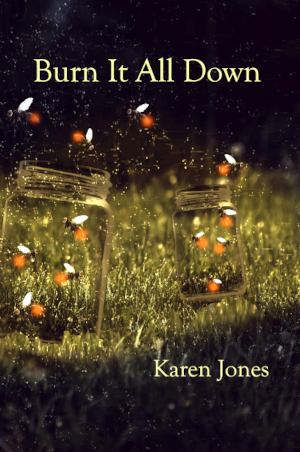 Imagine a farm on a seashore where two sisters celebrate the possible death of their brother-in-law, and the third, his wife, isn’t sure whether to mourn or join in with her sisters’ revelries.
Imagine a farm on a seashore where two sisters celebrate the possible death of their brother-in-law, and the third, his wife, isn’t sure whether to mourn or join in with her sisters’ revelries.
Imagine a home where chickens, guinea pigs and hedgehogs roam free with the memory of a pheasant on a leash.
Imagine if you couldn’t be sure what was real.
Inspired by the artwork of Andrea Kowch, Karen Jones paints a world where loneliness etches figures against the dusk. Beth has been married off to a man she doesn’t love, which means that the farm where she grew up now belongs to strangers. When her husband fails to return from a sea voyage, the mood grows unstable and Beth’s main concern is whether she will ever be touched again.
Her sisters Olivia and Esther are wild, riddled with spite and mockery, yet seem to want more than anything to lift Beth from her melancholy and infuse her with their unbridled joy. They are also uncanny creatures, who, Beth notes, “know my thoughts and dreams, even though I have never told them of these fancies. They knew my mind as if it were theirs.”
The stories turn you like waves with dreamlike passages soaked through with stark realism as the sisters claim they need no man, and pragmatic Beth disagrees, stating in ‘There Goes The Bride’: “They are naïve. No one would trade with us. No one trades with women, except to take advantage.”
The last line in the same brief tale offers an excellent example of the author’s capacity for wielding wit to devastate unwary readers: “Alone in my marital bed, I counted my blessings; it did not take long.”
The ekphrastic writing is so vivid, it’s easy to envision the paintings they sprang from, but it’s well worth a quick Google – like having a rumour satisfyingly confirmed.
The penultimate story is also the title tale and contains the full novella pinned to just enough words to fill a page. It’s a gorgeously compact work of prose poetry. The rhythm offers echoing refrains and vivid scenes to revel in, from “an ungrateful cat” who spits out milk to the desire to “knead your skin and bruise it like the berries for tomorrow’s pie, because there must always be pie.” These are sentences so artfully crafted they engage all the senses and seem richly scented and as seething with heat as a crowded kitchen.
The entire novella is a feast of impressions, where grief tangles in the wind with delusions and uncertain wishes. By the end of the book however, the yearnings have settled into something satisfyingly sure and possible. An enrapturing read full of heady passages that weave together to draw you inescapably in.
Burn It All Down by Karen Jones is published by Arroyo Seco Press and available to buy here.
This book was given to me in exchange for a fair review.
What are you reading? I’d love to know. I’m always happy to receive reviews of books, art, theatre and film. To submit or suggest a review, please send an email to judydarley (at) iCloud.com.
